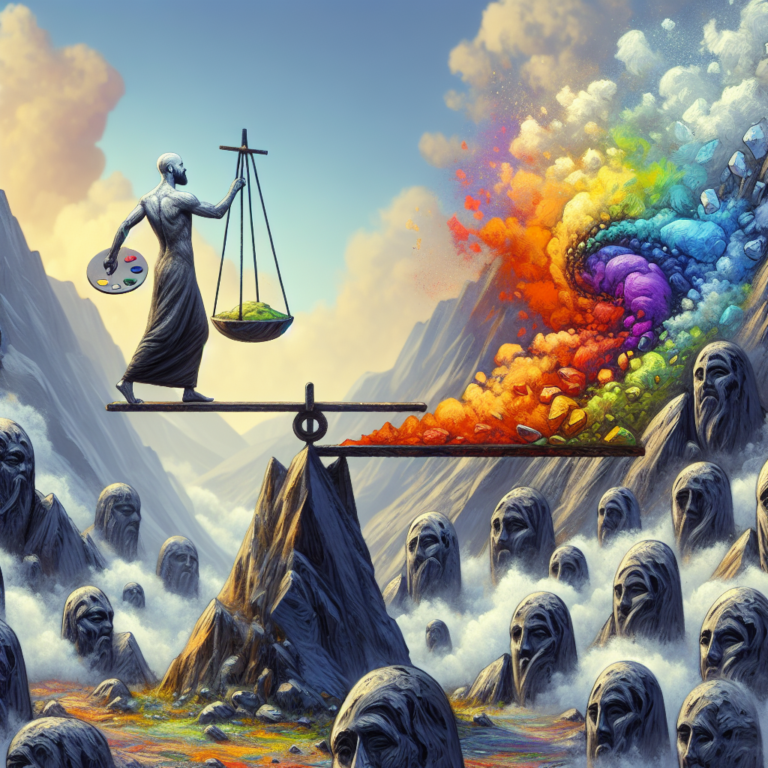Karma, a concept originating from ancient Indian philosophies, speaks to the principles of cause and effect, emphasizing how our actions (good or bad) come back to us. In essence, karma is more than just a spiritual or philosophical idea; it is a guiding principle that helps us navigate through the complexities of life, influencing our choices and shaping our experiences. In this article, we delve deeply into the nuances of karma, explore its implications on personal growth, relationships, and decision-making, and provide practical guidance on how to harness its power in everyday life.
Understanding Karma
Karma is rooted in the idea that every action generates a force that returns to the originator. This cycle of cause and effect transcends the physical realm and extends into emotional, relational, and spiritual dimensions. The term “karma” itself is derived from the Sanskrit word “karman,” which means “action” or “deed.” It encourages individuals to reflect on their actions and understand the broader implications of their choices.
The Three Types of Karma
To fully grasp the power of karma, it’s essential to understand its three primary types:
- Sanskrit Term: Sanchita Karma – This refers to the total accumulated karma from all past actions, both good and bad. Its effects may manifest in present or future lives.
- Sanskrit Term: Prarabdha Karma – This is the portion of accumulated karma that is currently manifesting and influencing one’s present life. It is often regarded as the predestined karma that shapes one’s current experiences.
- Sanskrit Term: Agami Karma – This represents the karma that is in the process of being created through current actions. Agami karma influences one’s future experiences based on present behavior.
The Principle of Cause and Effect
The essence of karma lies in the principle of cause and effect. Every choice we make, from small daily actions to major life decisions, sends ripples through the universe. When we understand this principle, we recognize that we hold the power to shape our lives through our choices. Positive actions, such as kindness, honesty, and compassion, create beneficial outcomes, while negative actions can lead to negative repercussions.
Examples of Cause and Effect
To illustrate the workings of karma, consider the following scenarios:
- You find a lost wallet on the street and choose to return it to its owner. This act of integrity may bolster your community reputation and create goodwill, leading to opportunities in your personal or professional life.
- You continuously engage in negative self-talk and criticize others. Over time, this can foster a toxic environment around you, resulting in strained relationships and isolation.
Navigating Life’s Choices with Karma
Life is a series of choices, and understanding the concept of karma enables individuals to approach these choices mindfully. Making decisions isn’t merely about immediate benefits; it’s about considering long-term effects and consequences.
Mindful Decision-Making
Mindfulness is a critical practice in karma-based decision-making. Being aware of your intentions behind actions can indicate whether they stem from a place of love or fear, generosity or greed, compassion or resentment. Practicing mindfulness can enhance your awareness of how your choices affect you and others around you.
The Role of Intention
The intention behind an action significantly influences its karmic outcome. A seemingly good deed performed with selfish motives can lead to negative karma, whereas a small act of kindness done with genuine intent can yield positive results in the long run. Cultivating positive intentions can lead to more fulfilling relationships and experiences.
The Ripple Effect of Karma in Relationships
Relationships are a vital aspect of human existence, and karma plays a pivotal role in shaping them. Each interaction we have with others generates energy, whether it is positive or negative, contributing to the larger karmic web that connects us all.
Building Healthy Relationships
To create and maintain healthy relationships, consider the following karmic principles:
- Take Responsibility: Acknowledge your role in conflicts and misunderstandings. Taking responsibility for your actions fosters personal growth and strengthens relationships.
- Forgive and Let Go: Holding onto grudges creates negative karma that affects both you and the other party. Practicing forgiveness is crucial in freeing ourselves from past hurts.
- Show Appreciation: Expressing gratitude strengthens positive bonds and fosters an environment of mutual respect and understanding.
Embracing Positive Actions for Growth
To harness the power of karma effectively, individuals must commit to cultivating positive actions that align with their true values and aspirations. This commitment leads to personal growth and contributes positively to the world around us.
Practicing Kindness
Simple acts of kindness can create substantial positive karma. Holding the door for someone, offering a compliment, or volunteering time for community service can have a lasting impact on those around you and foster a sense of interconnectedness.
Emotional Intelligence
Cultivating emotional intelligence allows you to navigate interpersonal relationships with empathy and understanding. This attribute not only enhances your personal and professional relationships but also contributes positive energy to your surroundings.
The Spiritual Dimension of Karma
Beyond the realm of choices and actions lies the spiritual dimension of karma. Understanding one’s spiritual journey in context to karma can yield profound insights into the nature of existence and personal fulfillment.
Learning from Adversity
Often, the most significant lessons arise from challenging experiences, which may be perceived as negative karma. Understanding that these challenges are opportunities for growth allows individuals to approach adversity with a sense of purpose and resilience.
Connecting with Higher Purpose
When individuals align their actions with their higher purpose, they create a powerful force that propels them toward meaningful achievements. This connection amplifies the positive karma we generate and enhances our overall experience of life.
Conclusion
The concept of karma serves as a sophisticated framework for understanding the implications of our choices and actions. Recognizing that every action has consequences empowers individuals to make decisions that align with their values, contribute positively to their communities, and foster personal growth. By embracing the principles of mindfulness, intention, and kindness, we can navigate life’s challenges with grace, creating a ripple effect of positivity that benefits us and those around us. In essence, when we comprehend the power of karma, we unlock the potential to lead fulfilling lives filled with purpose, connection, and resilience.
FAQs
What is karma in simple terms?
Karma is the belief that our actions, whether good or bad, determine our future experiences. It reflects the principle of cause and effect, suggesting that positive actions yield positive outcomes, while negative actions result in adverse consequences.
Can karma be changed or altered?
While our past actions certainly create karma, we always have the power to change our current actions moving forward. By focusing on positive deeds and intentions, we can influence our future experiences and mitigate negative karma.
How does karma affect relationships?
Karma influences our relationships through the actions we take and the energy we share with others. Positive interactions lead to growth and harmony, while negative actions can create tension and conflict. Building healthy relationships requires mindfulness, responsibility, and compassion.
Is karma limited to this life only?
Karma can be viewed as a broader life principle that extends beyond a single lifetime. Many philosophical and spiritual traditions believe in the accumulation of karma across multiple lives, where actions can influence future incarnations.
What can I do to create positive karma?
To create positive karma, engage in acts of kindness, be mindful of your intentions, practice gratitude, and take responsibility for your actions. Regularly reflecting on your choices and their implications can also contribute to building a more positive karmic path.
, It seems like your message is incomplete. Could you please provide more details or specify what you would like assistance with? Whether it’s a topic, question, or a specific request, I’m here to help!, #Power #Karma #Navigating #Lifes #Choices, #Power #Karma #Navigating #Lifes #Choices, 1734052828, the-power-of-karma-navigating-lifes-choices





